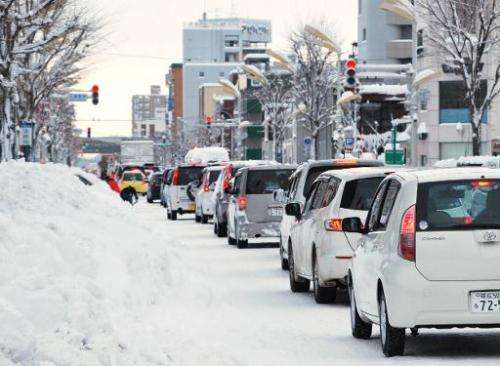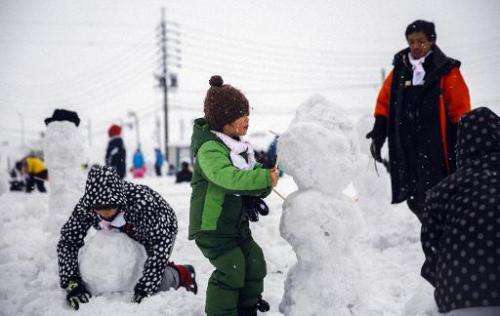Japanese LED traffic lights just too cool when snow falls

Energy-saving LED traffic lights seemed like a cool way to cut back on electricity costs, but Japanese police said Monday they might just be too cool—because they don't melt snow.
Light-emitting diodes (LEDs) account for around 45 percent of all of Japan's stop-and-go signals and that proportion is growing as local authorities cotton on to their economising possibilities compared with regular incandescent lights.
But in wintery northern Japan the lights have encountered a problem—drivers can't see them because they don't get warm enough to melt accumulated snow.
Akira Kudo of Aomori Prefectural Police said snow has to be removed manually between December and mid-February during blizzards.
"We don't have enough staff members to remove snow as more and more LED lights are being introduced," he said.
LED lighting is becoming ever more popular in public and private spaces because of its lower energy consumption.
The technology has been big news in Japan since three local-born physicists won the Nobel Prize last year for the development of the blue LED, the breakthrough that led to the white LED now commonly used worldwide.

© 2015 AFP



















